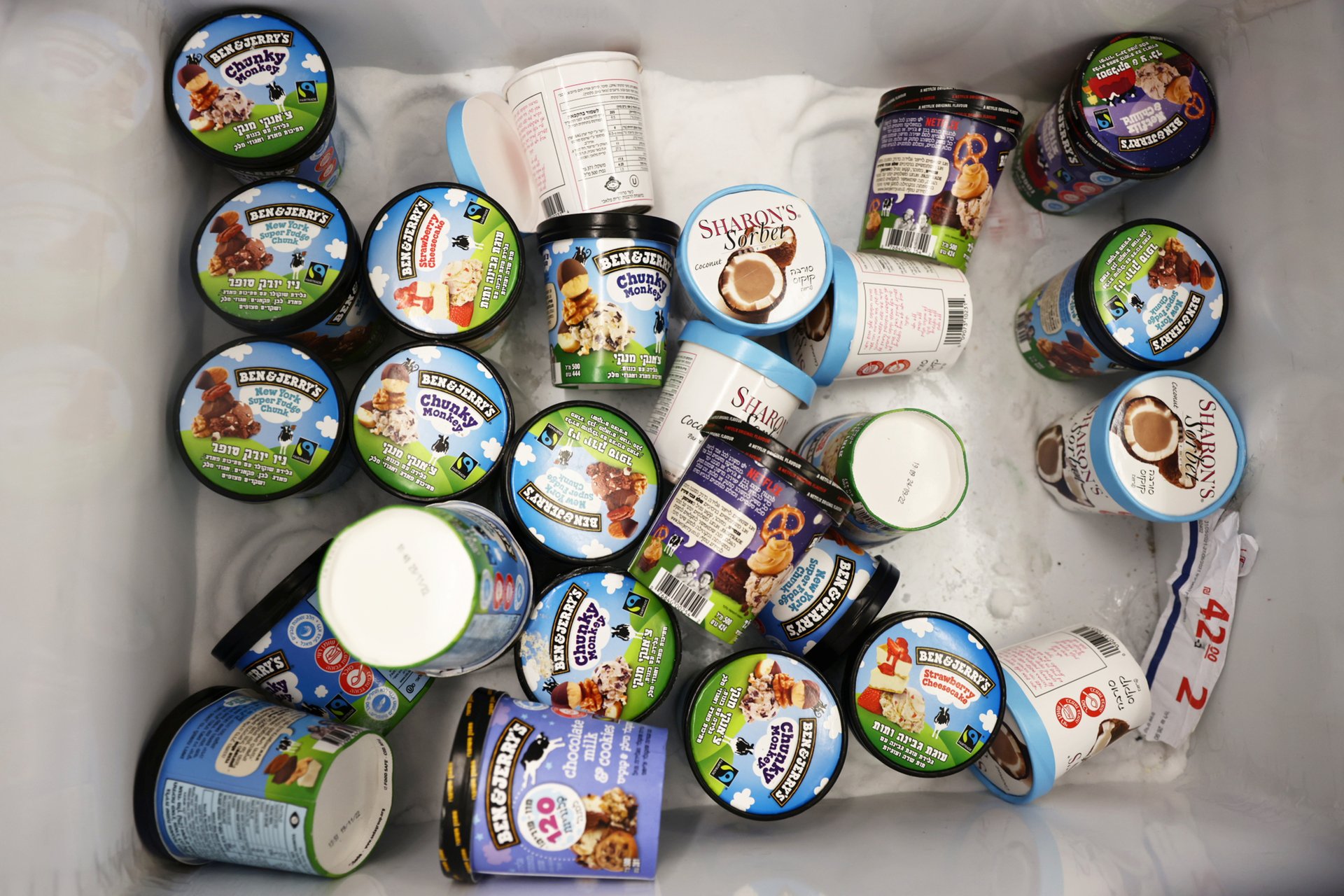Ben & Jerry’s is suing parent company Unilever for trying to subvert its mission
The Ben & Jerry's case against Unilever is a test for mission-driven business everywhere.

Maybe it was always going to be complicated.
Unilever, a huge international stable of companies, has for years been positioning itself as a consumer goods company with strong ethics. The strategy had two prongs. One was the vocality of Paul Polman, the CEO until January 2019, on the need for business to change in the face of global problems like climate change and exploitative supply chains.
The other was to buy brands with strong moral standpoints, and let them continue to operate with a degree of independence while benefiting from Unilever’s reach and resources. Unilever bought Seventh Generation, for example, a company that makes non-toxic cleaning products, in 2016; part of the deal was that it retained a “social mission board.” Alison Whritenour, Seventh Generation’s CEO, told Quartz in March 2022 that the existence of that board and the company’s robust values allowed it to push back against Unilever, even to change it from the inside.
One of the most long-standing and, so far, successful of these arrangements was between Unilever and Ben & Jerry’s.
Unilever bought the artisanal ice cream maker 22 years ago, but the hippie-style brand has to a large extent succeeded in maintaining its own peace-love-and-ice-cream identity.
Now, a disagreement about the sale of Ben & Jerry’s ice cream in Israel is threatening to derail the relationship. In the latest developments, lawyers representing Ben & Jerry’s are taking Unilever to court, after mediation collapsed, in an effort to make Unilever admit to allegations that it reneged on the promises it made to uphold Ben & Jerry’s mission.
The background
In July 2021, Ben & Jerry’s announced it would stop selling ice cream in the Occupied Palestinian Territories (OPT), as defined by the UN, though it would remain in other parts of Israel. (Ben & Jerry’s founders are Jewish and support the state of Israel, they noted in the 2021 announcement.)
The planned withdrawal created a problem for Unilever, which came under pressure from Israel and from some US and international investors to reverse the decision. Nearly a year later, in June 2022, Unilever announced a solution which was also a sidestep: It would sell the Ben & Jerry’s business in Israel to the existing Israeli licensee, effectively walking away from the problem but at the same time allowing the same product, with the same name and packaging, to continue being sold in both Israel and the OPT.
Quartz and other commentators asked: Can a company remain mission-driven, as Unilever professes to be via brands like Ben & Jerry’s, if it simply avoids making a stand when a difficult situation arises?
Ben & Jerry’s apparently felt the same. In early July, it filed a lawsuit against its parent company, asking Unilever to recognize its “violation of the letter and the spirit of our original Merger Agreement,” said Ben & Jerry’s board chair, Anuradha Mittal, in a statement.
The relationship quickly deteriorated: Ben & Jerry’s says Unilever froze its board’s pay following the filing of the lawsuit, “as a pressure tactic prior to a mediation.”
Ben & Jerry’s and Unilever will be back in court
In-person mediation between the two companies followed in mid-July, but collapsed. Now, Ben & Jerry’s is taking Unilever back to court, both to continue pressing it on the original agreement, and to try and stop any more progress with the sale of the business in Israel. (The deal is done but not all loose ends are yet tied up.)
“If Unilever is willing to so blatantly violate the Agreement that has governed the parties’ conduct for over two decades, then we believe it won’t stop with this issue,” Mittal said.
“If left unaddressed, Unilever’s actions will undermine our social mission and the essential integrity of the brand, which threatens our reputation, and ultimately, our business as a whole,” she added.
Unilever doesn’t comment on issues with legal ramifications, a spokesperson told Quartz.
Unilever and Ben & Jerry’s will be back in a New York court for another hearing on Aug. 8.
It’s a test both for big corporations that want to buy ethical credentials by buying mission-driven brands, and for small companies that hope to keep operating with integrity while achieving the global scale Ben & Jerry’s, founded by two friends in Vermont in 1978, has seen since its acquisition.
